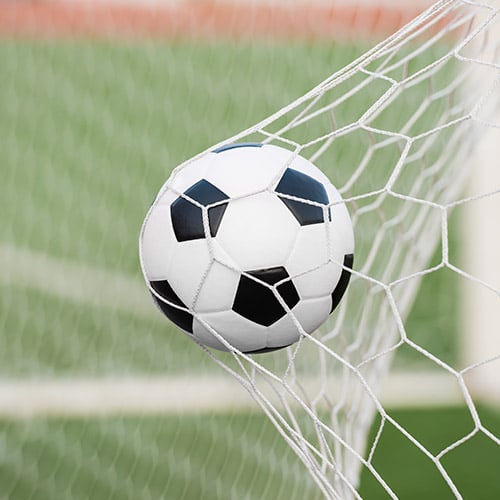We all talk about momentum in sport, both positively and negatively. But what really is momentum? Where does it come from? And how can you harness it?
Here at InnerDrive HQ we thought that we’d take a look at the research and find out. Here’s what the research says…
What is momentum in sports?
Have you ever felt like you were on a winning streak? Like no matter what your next move is, you know it will have a positive impact?
That’s momentum. Researchers have defined it as the psychological power that can influence an athlete’s mental and physical efforts. This has strong links to the “success breeds success” theory, which states when an individual has a string of successes, they are likely to experience continued success. In sports, this is better known as “the hot hand myth” or “positive momentum.”
Why is positive momentum so important?
Momentum is very important within sports as it can transform a match from terrible to spectacular. That initial kickstart to momentum can help your team create a winning culture increasing your performance and chances of success.
Positive momentum can increase several things, which include:
- Confidence
- Self-efficacy
- Performance and success
- Team cohesion
- Competency
Is momentum just another word for luck?
There is a recurring question within sport psychology on the subject of positive momentum; many have wondered whether continuous success is actually a factor of positive momentum or whether it’s just a caused by luck.
Well, an interesting paper looking at the performance of archery players found the archers were more likely to shoot better following streaks of two perfect shots (10 points) than their average shooting score. On the other hand, if archers were to miss one or two shots, they were less likely to score a bullseye on their third try.
This displays that success really does breed success and continuous success can be attributed to a “hot hand,” not just luck.
The multidimensional model of momentum
Momentum is said to impact athletes in three ways…
- Cognition
When an athlete begins to perform well, it affects their cognition. They feel like they have more control over their results and performance. This in turn boosts their confidence to succeed and increases their belief in their abilities. It also allows them to focus on task-relevant messages for the performance ahead.
- Affect
The change in cognition experienced by the athlete has a direct effect on their feelings and emotions. Athletes will feel a sense of pleasure and will be flooded with positive emotions which increases the likelihood of success in their sport.
- Physiology
Alterations in cognition and affect have an impact on physical stimulation. Factors such as heart rate, respiration and adrenaline can further influence cognition and improve performance.
3 tips to increase positive momentum
Developing a winning culture is something every athlete or team desire. Here are a few tips to help you out …
- Use positive self-talk and imagery – This can improve your focus towards the task at hand as well as allow you to visualise the behaviour and skills needed to achieve success.
- Control your emotions – Taking a couple of deep breaths and shaking out your muscles can lower negative emotions that disrupt momentum.
- Practice stopping negative thoughts – Saying to yourself “stop” or even imagining a stop sign can put a pause on the negative thoughts that hinder your momentum.
Final thoughts
Momentum plays a very influential role in future performance. Although the process is psychological, it provokes a physical response that helps athletes achieve continued success in their respective sports.
It is clear that initial success leads to the increased likelihood of later success. By using this knowledge, athletes can understand how to create positive momentum in competitive situations instead of relying on luck helping their performance thrive.





